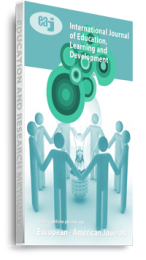This quasi-experimental research aims to examine the differences effect of reciprocal teaching and group investigation models on students’ critical thinking skills. The students of social science grade 11 of Senior High School 6 Kendari Indonesia was assigned to be the subject of this research. Student’s critical thinking skill is measured using essay test (with reliability coefficient equal to 0,874). The normality of data is determined using Shapiro-Wilk test, and the homogeneity of the data is determined by the Levene test. The research hypotheses are tested by using student’s t-test. The results reveal that there is any significant difference in students’ critical thinking skill before and after the application of reciprocal teaching model. There is any significant difference in students’ critical thinking skills before and after the application of group investigation model. The critical thinking skills of students taught by the reciprocal teaching model are better than those taught by group investigation model. Thus, if we want to improve students’ critical thinking skills, especially, in economic subjects then one of the alternatives that can be used is the application of reciprocal teaching model.
Keywords: Group Investigation, Reciprocal Teaching, and Critical Thinking Skills

